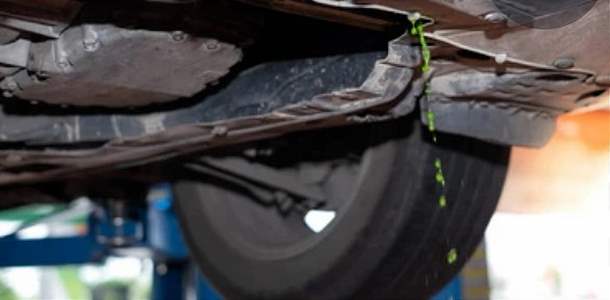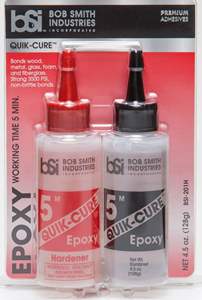
Any leak in your car is a problem! Let me be honest with you. When any fluid leaks out of your car into the environment, it causes your car to function poorly.
Imagine having coolant leaking from the radiator! It might not sound like a big problem, but it is hazardous as it can damage your engine.
Because coolant plays a critical role in the normal functioning of your car, it needs to be checked. And if there’s any leakage, one should remain highly aware of the common causes and fixes.
Why Is Coolant Leaking from the Radiator?
There can be many possible reasons for the leakage of coolant. Mainly, radiators develop leaks as a result of vibration. These leaks usually occur around upper and lower hose connections.
Causes of Coolant Leaking from Radiator are:
- Water pump gasket leak
- Coolant leaking from radiator hose
- Intake manifold gasket leak
- Heater core leak
- Core hole plugs / Freeze plugs
- Coolant leaking from radiator cap
- Corroded radiator
Water Pump Gasket Leak
A damaged or worn-out gasket on the water pump shaft can cause a coolant leak. A bad seal allows coolant to drizzle down through the vent hole. This hole is located just below the water pump pulley shaft.
Moreover, the gasket or the O-ring, which seals and connects the water pump to the engine front cover, can also be a source of leakage. Any remains of liquid coolant, stains, or discoloration on the outside of the water pump or engine clearly show signs of leakage.
Fixture: Now, you might be wondering how to fix this issue? The only fix for the leaking pump is to replace the water pump gasket and get a new one.
Coolant Leaking from Radiator Hose
A coolant can leak from both the upper radiator hose and lower radiator hose. A loose or damaged hose end can lead to problematic coolant leaking from the ends of a hose.
However, the leakage can also occur due to cracks and pinholes. When the hose gets extremely hot, the pinhole or the already existing cracks may open up, leading to the radiator leaking from the bottom.
Fixture: To fix the issue, you need to inspect the radiator hose thoroughly. If you find any cracks and pinholes, then use epoxy to fill the cracks.
If the hose clamps are problematic, either tighten them or change them if necessary. If hose connections are broken, then weld the broken ends, thus stopping the leak. You can use a Bob Smith Industries epoxy for a quick fix. See price on Amazon.
Corroded Radiator
Corrosion itself is a sign of old metal that has never been taken care of. Similarly, a corroded radiator is another reason causing a coolant leak.
Radiators can develop leaks due to multiple reasons. It may happen due to vibration, damaged core, or corrosion. Another reason for the corrosion is an old coolant.
Internal corrosion of the radiator occurs when the coolant becomes old and has never been changed. This stale coolant can eat through metal in the radiator, causing itself to leak.
Fixture: To repair a corroded radiator, firstly use anti-corrosion spray. You can use any type, such as WD-40, and clean the radiator.
In order to stop the leak, you need to use a radiator leak sealant. Don’t know which one to go for? Have a look at the USA-made best radiator leak sealer to help you overcome the issue. See price on Amazon.
Intake Manifold Gasket Leak
This gasket works by sealing the intake manifold to the cylinder heads. In case of a ruptured or worn-out gasket, the pathway for leakage becomes clear.
Thus, the intake manifold gasket starts leaking and allows the coolant to dribble down outside of the engine or enter the intake port.
Fixture: If you face the coolant leakage due to the intake manifold gasket, there is no fix to this problem, except for a change of the gasket, moreover you can use a sealant before going to big work.
Heater Core Leak
If the coolant leak is happening due to the heater core, there might be two possible conditions. First, the heater core located inside the HVAC unit might be leaking, or a hose connection to the heater core might be leaking.
Whatever is the case, both conditions will let the coolant seep out from the bottom of the HVAC (heating, ventilation, and air conditioning) system.
The coolant leak will keep on dripping on the floor inside the passenger compartment until you fix the problem. Want to know how?
Fixture: You need to check the pipe and hose clamp to the heater core. In case of any damage, a quick repair or replacement is required to solve the problem.
Core Hole Plugs / Freeze Plugs
Core hole plugs are thin metal cups. These are usually press-fitted into casting holes in the sides of the engine. These are also called freeze plugs.
These core plugs can also be another reason for coolant leaking. Core plugs often start leaking due to corrosion caused by water from the cooling system of a car.
Fixture: In order to stop the leak from extending any further, you need to get new plugs to prevent the leakage, or else you can also use a radiator leak sealer.
Coolant Leaking from Radiator Cap
When a coolant reservoir cap leak happens, it may occur due to many possible reasons. Want to know what causes coolant to leak from the radiator cap?
Firstly, when a radiator cap gets loose, it can lead to coolant leakage. In another case, the radiator cap gets bad as it could not regulate the pressure anymore. When any of the condition happens, the coolant overflows through surge tank and thus start leaking.
Fixture: Thoroughly examine the cap and if you notice some cracks, use epoxy to resolve the issue. You also need to look for the seal, and if it is damaged, it may also need to be replaced.
Other coolant leak causes can be an old radiator or some accidental hit.
How do I Know if My Radiator is Leaking?
Now that you have come to understand the possible reasons for coolant leakage, how to be sure that the radiator is problematic? Let’s have a look at common identifying conditions.
The common radiator leak symptoms are:
- Low Coolant Level
- Puddle Under the Car
- Discoloration or Corrosion
- Frequent Engine Overheating
- Faulty Radiator Hoses
Low Coolant Level
You might be wondering, “Is it normal for coolant level to drop?” Well, you are not alone with this ambiguity!
As the vehicle operates and runs across miles, the gradual drop in the coolant level is completely normal. However, if the drop is significantly higher than usual, it shows a major leak.
Puddle Under the Car
When you see a puddle of fluid under your car, it may be a clear indication of coolant leakage. Each time your vehicle is parked, you should look for the fluid under the car.
A bright green, slimy type of fluid is a strong indicator of a leaking radiator of your car.
Discoloration or Corrosion
Discoloration or corrosion emerging on the radiator is another clear sign of leakage from the radiator cap. If the coolant is leaking, there must be discoloration or corrosion on the radiator and its extensions.
Thus, to have a distinct affirmation, you must inspect engine parts and the lower side of the radiator.
Frequent Engine Overheating
The central role of the radiator is to keep the engine from overheating. Thus, if your car is displaying signs of high engine temperature, the presence of leakage is the most common suspicion.
Faulty Radiator Hoses
Sometimes the leakage might occur due to faulty hoses as well. The hoses which connect to the radiator loosen over time with vibrations.
Similarly, the associated clamps also tend to loosen. Therefore, it is important to examine hoses and clamps over time to spot any damages that can lead to coolant leakage.
Can You Drive a Car with a Coolant Leak?
As already mentioned the main task of coolant is to keep the engine cool while driving.
Driving a car with a coolant leakage is simply an invitation to engine failure. If you found any leak then fix it without wasting any time.
How to Seal a Leaking Radiator?
Are you facing the hassle of fixing a leaking radiator? Well, let me make it simple for you!
To fix a leakage, you must find the primary cause of coolant leaking from the radiator. For this purpose, examine whether the coolant leak is from the bottom of the car or due to a radiator hose leak at the clamp. It is so because each problem has a different solution to it.
Still not finding it suitable? Here are some quick home remedies for car radiator leaks!
How to Fix Radiator Leak with Eggs?
Now, this sounds intriguing. Let me tell you, eggs can help you fix pinhole leaks in the radiator, but this is not an eternal fix to the problem.
Start by separating egg yolks from whites to fix the leakage. Keep aside egg whites and gather egg yolks from three to four eggs. Now put the yolks into the coolant system through the radiator cap of your car. Start the engine just as you would do with another leak sealant.
Let the yolks travel through the coolant system as they would congeal and conceal minor leaks in the radiator. This fix can allow you to reach your home or garage for a better repair.
Before you try this method, there are two important things you must understand:
- Using egg yolks comes with a threat to clog coolant lines. Thus the process is only recommended in case of emergencies.
- This method is not a durable fix and is not highly reliable. As it is no substitution for real products, you may need commercial products for a long-lasting fix.
How to Fix Radiator Leak with Pepper?
This one sounds even better. Pepper is another product that can help you slow down the leakage process, thus can help you get home or workshop for proper repair.
Firstly, wait for your car’s engine to cool down. Now, start adding about the half packet of black pepper in the radiator. The pepper balls, will travel through the coolant system. They are likely to get stuck in leaks and cracks. This allows a temporary fix, thus slows down the process of leakage.
Before dwelling on a trial attempt, you must know that:
- This method is not recommended for common use except for emergencies. It is no substitution for commercial products.
- Moreover, pepper is effective for small leaks and may not work for large leaks.
How Long does Black Pepper in the Radiator Last?
As mentioned earlier, black pepper is not a permanent solution. It is simply a temporary fix for emergency use. It does not last longer than 2-3 hours. However, for a more durable and permanent fix, a radiator leak sealer is recommended.
Why is Coolant Leaking from Overflow Hose?
Want to know the reason for overflow? Let me tell you; this might happen due to many reasons.
The coolant might be overfilled, thus leading towards overflowing. If the radiator cap is not sealed, this may also cause overflowing through hoses. Sometimes, a leaking cylinder head gasket causes over-pressurization of the coolant, causing it to overflow, or else the engine might be running at a very high temperature.
Whatever be the reason, the use of a coolant hose leak sealer is recommended for a reliable fix to this problem.
Related Article: Air in Coolant System Symptoms – A COMPLETE GUIDE


